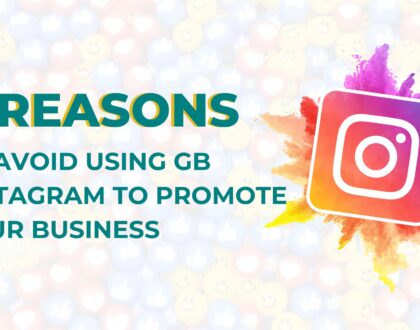The Do’s and Don’ts of Turning Your Hobby into a Business

Welcome to the exciting world of turning your hobby into a business! Have you ever found yourself passionately immersed in your favourite pastime, dreaming of a future where it could become more than
Welcome to the exciting world of turning your hobby into a business! Have you ever found yourself passionately immersed in your favourite pastime, dreaming of a future where it could become more than just a hobby? Well, you’re not alone.
Many successful entrepreneurs have started exactly where you are, burningly wanting to transform their passion into a thriving business venture.
Before you turn your hobby into a business, it’s essential to approach the journey with caution and strategy. This guide will give you the insights to make informed decisions as you embark on this transformation.
Whether you’re an artist, baker, fashionista, or tech enthusiast, we’ll explore the do’s and don’ts of turning your passion into a thriving business. Through interactive exercises, real-life examples, and expert advice, we’ll show you how to research your market, develop a business plan, and build a strong brand.
We’ll also cover the common pitfalls to avoid, like relying solely on passion, neglecting financial planning, and overlooking legal requirements. This piece is written to help you put your feet on the right path when turning your hobby into a business.
Now, let’s begin.
The Do’s: What to do when starting out
#1. Research and Validate Your Market
Before starting a business, conducting thorough research on your target market is essential. Understanding market demand, identifying potential customers, and assessing competition is crucial for the success of your business.
Doing so lets you determine the viability of turning your hobby into a successful business.
#2. Develop a Business Plan
Creating a detailed business plan is crucial for achieving success in your business. This plan should include your objectives, target market, marketing strategies, financial projections, and operations. Creating a clear roadmap lets you focus on your goals and make strategic decisions.
#3. Test The Waters
To ensure success, test your concept on a smaller scale before launching full-scale production or service delivery is best.
You can offer your product or service at local events, craft fairs, or online platforms to gather customer feedback. By refining your offerings based on their responses, you can improve your chances of success.
#4. Build a Strong Brand
Creating a solid brand identity is essential to connect with your target audience. This involves completing an appealing logo, establishing your brand values, and maintaining a consistent brand voice across all marketing channels. Dedicate time and effort to this process.
#5. Establish an Online Presence
In this digital age, businesses must have a solid online presence. To achieve success, create a professional website, establish social media accounts, and use relevant online platforms to showcase your products, engage with customers, and boost sales.
#6. Seek Mentorship and Networking Opportunities
For a better entrepreneurial experience, it’s advisable to network with other entrepreneurs, join industry-related associations, and find mentors to offer guidance and support. Gaining insights from those who have successfully turned their hobbies into businesses can be invaluable.

The Don’ts: Pitfalls to avoid
#1. Rely Solely on Passion
Although a passion for your hobby is necessary, more is needed to keep a business running. It’s crucial to verify that there is a profitable market and demand for your product or service before investing a considerable amount of time and money.
#2. Neglect Financial Planning
One common pitfall many business owners make is neglecting the financial aspects of their business. Establishing a realistic budget, monitoring expenditures, and comprehending pricing, profit margins, and cash flow management is essential to prevent economic issues.
#3. Overcommit Yourself Too Soon
Taking on only a little is essential when beginning your business. Expanding too rapidly may result in problems with your product or service, unhappy customers, and exhaustion. As you gain experience and refine your procedures, growing your business gradually is advisable.
#4. Ignore Legal and Regulatory Requirements
It’s essential to be aware of the legal and regulatory obligations that pertain to your business. These could involve registering your business, securing necessary permits or licenses, and following tax regulations. It’s crucial to take care of these requirements to prevent legal troubles in the future.
#5. Refrain From Marketing and Customer Acquisition
A great product or service cannot sell independently. It is essential to allocate time and resources towards marketing and customer acquisition strategies.
Creating a marketing plan encompassing both online and offline channels is crucial, and it is necessary to assess and modify your approach based on the outcomes constantly.
#6. Forget About Work-Life Balance
As you turn your hobby into a business, getting caught up in work is expected. Nevertheless, it’s crucial to maintain a healthy balance between work and personal life to avoid exhaustion. You can achieve this by setting limits, prioritising self-care, and outsourcing tasks whenever feasible.
Wrapping Up
Remember, turning a hobby into a business requires dedication, perseverance, and flexibility. Following these do’s and don’ts can increase your chances of success and build a thriving venture around your passion.
Stay tuned to this page for more business nuggets like this, and watch out for our business education, financing and mentor-matching platforms launching soon.
We’re also building a community of entrepreneurs who are either turning their passions into businesses or already building their empires. Join our waitlist to be the first to know when we launch this.
Recommended Posts

How to Grow Your Local Business Using Google My Business App
January 20, 2025

12 Ideas For Starting An Online Business That Pays Daily In Nigeria
October 31, 2024

5 Reasons To Avoid Using GB Instagram To Promote Your Business
October 17, 2024
